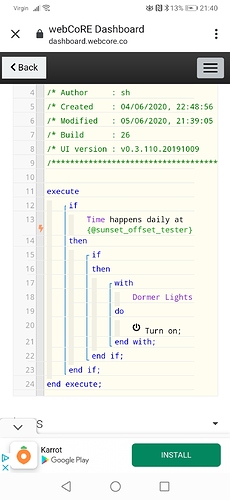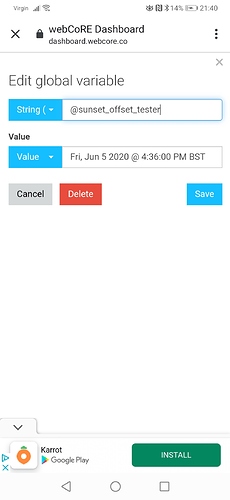1) Give a description of the problem
I’ve created a global variable which captures a time in a piston. In a different piston, I want the piston to run when it reaches the global variable time, but it won’t run.
2) What is the expected behaviour?
(PUT YOUR INFO HERE)
3) What is happening/not happening?
The piston won’t run once the global variable time is reached. See the very basic piston and also see the global variable
4) Post a Green Snapshot of the piston![]()
(UPLOAD YOUR IMAGE HERE)
5) Attach logs after turning logging level to Full
(PASTE YOUR LOGS HERE THEN HIGHLIGHT ALL OF THE LOGS AND CLICK ON THE </> ICON TO FORMAT THEM CORRECTLY)
REMOVE BELOW AFTER READING
If a solution is found for your question then please mark the post as the solution.




